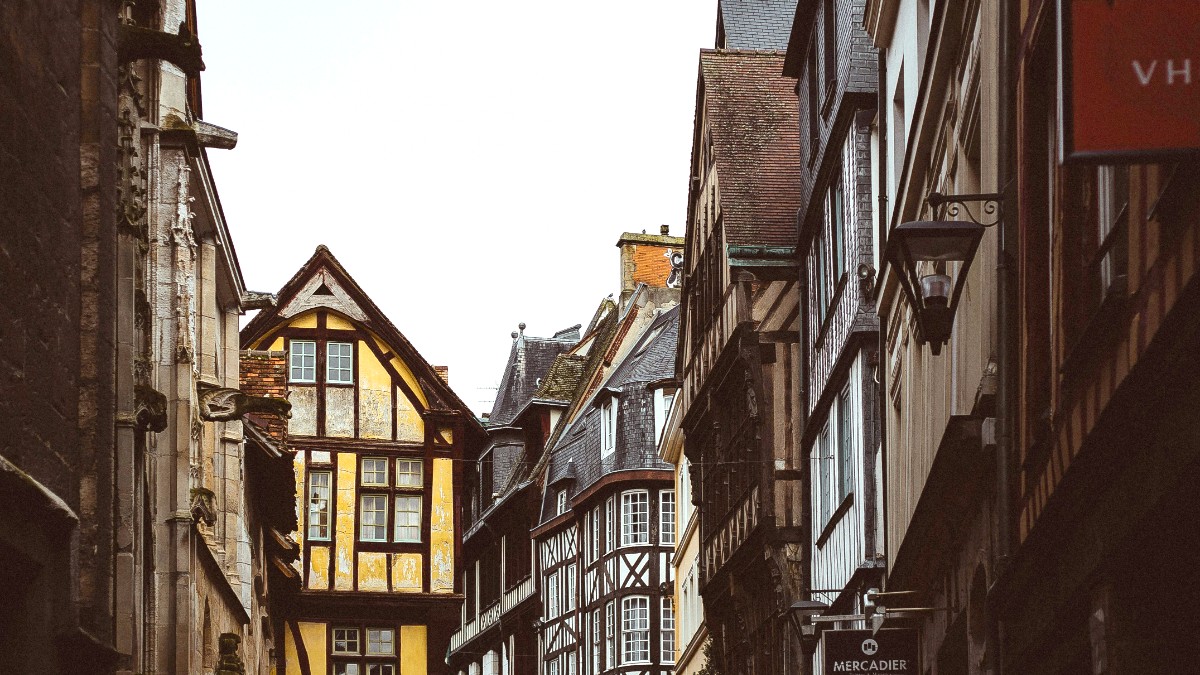
Normandy, France
The Astuce network comprises several modes of transport: the Métro (tramway), an extensive bus network, and "Teor" (Bus Rapid Transit) lines. It connects areas like the main train station (Gare SNCF), the bustling city center (Théâtre des Arts), and various university campuses. It is a quick and efficient way to travel across the city.
Detailed route maps for the Métro, Teor, and bus lines are available at Astuce information points, at major bus stops, and often within Métro stations. The full network map and real-time information are accessible on the official Astuce website (reseau-astuce.fr).
Théâtre des Arts is a central hub where Métro lines converge and many bus lines pass through. Gare SNCF (Rouen-Rive-Droite) serves as a hub, connecting regional and national trains with the local network.
Single ticket: Approximately €1.70 - €2.00. Day pass: Approximately €5.00 - €6.00. Prices for weekly or monthly passes vary but offer good value for frequent use. Always validate your ticket or pass when boarding.
Métro/Teor generally operate from early morning (around 5:00 AM) until late evening (around midnight). Service is reduced on Sundays and public holidays. During peak hours, frequency is higher (every 6-10 minutes).
White cars with a "TAXI" sign on the roof and a meter inside. Find them at designated stands or hail on street if light is green.
Fares are metered. Night and Sunday rates are higher. Most taxis accept major credit cards; confirm with the driver. A short ride might cost €10-€20.
Uber operates in Rouen. Bolt may also be available. These apps function similarly to other major cities, allowing booking, fare estimates, and tracking.
Licensed taxis are regulated. Ride-sharing apps offer safety features like GPS tracking. Always confirm license plate and driver's name before entering.
For those who prefer independent exploration or plan day trips outside the city, various rental options are available in Rouen.
Rouen's historic center is highly pedestrian-friendly. Many streets are narrow, cobbled, and designated as pedestrian zones, perfect for leisurely strolls.
Various local companies and the Rouen Tourist Office offer guided walking tours focusing on specific themes, like Joan of Arc or Gothic architecture. Numerous self-guided walking routes and maps are available online.
Dedicated bike lanes exist in some areas, specifically along the Seine. Sharing roads with vehicle traffic is common elsewhere. Rouen is part of the "Seine à Vélo" route, a long-distance cycling path.
Rouen presents a few specialized transportation options that enhance the visitor experience, often serving a recreational or tour purpose.
Rouen's historic center is highly pedestrian-friendly. Many streets are narrow, cobbled, and designated as pedestrian zones.
Perfect for leisurely strolls.
Dedicated bike lanes exist in some areas of Rouen, specifically along the Seine. The paths along the Seine are pleasant for recreational rides.
Part of the "Seine à Vélo" route.
Sharing roads with vehicle traffic is common in other parts of the city. Helmets are recommended but not mandatory for adults.
Exercise normal urban caution.
While the city has standard public transport, special tours like the Petit Train or river cruises offer unique ways to see Rouen's highlights.
These are for leisure, not commuting.